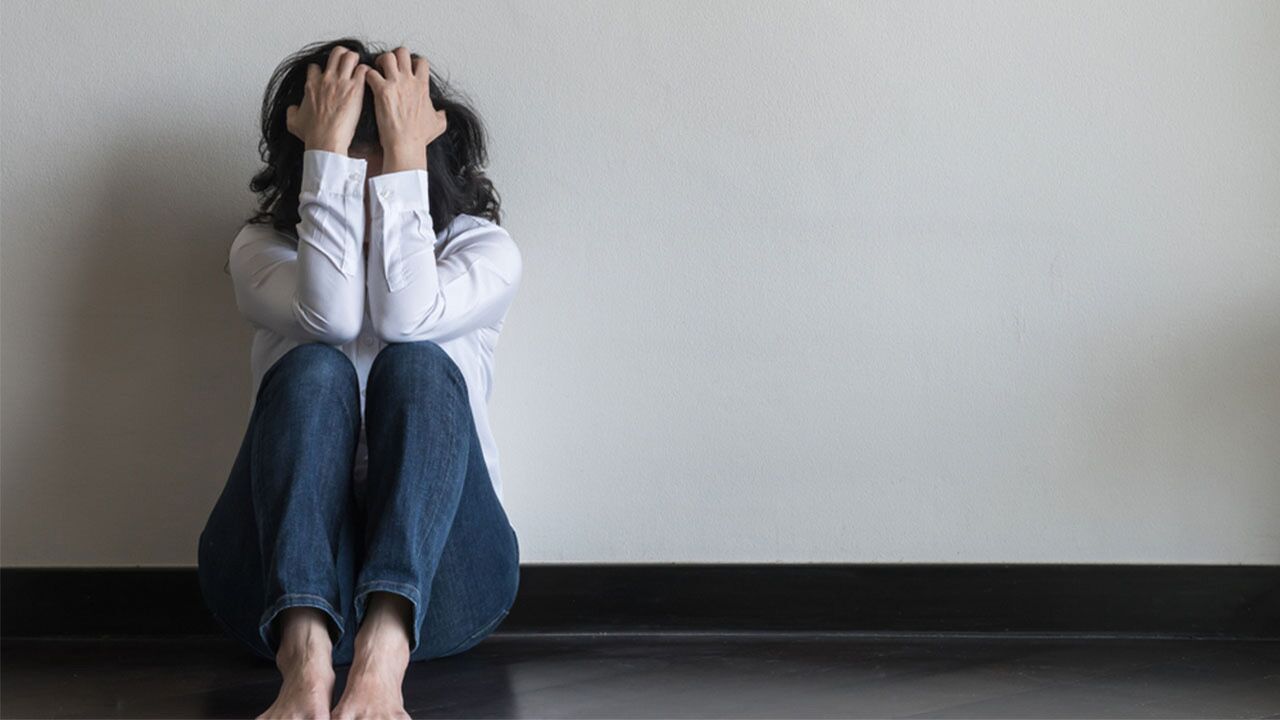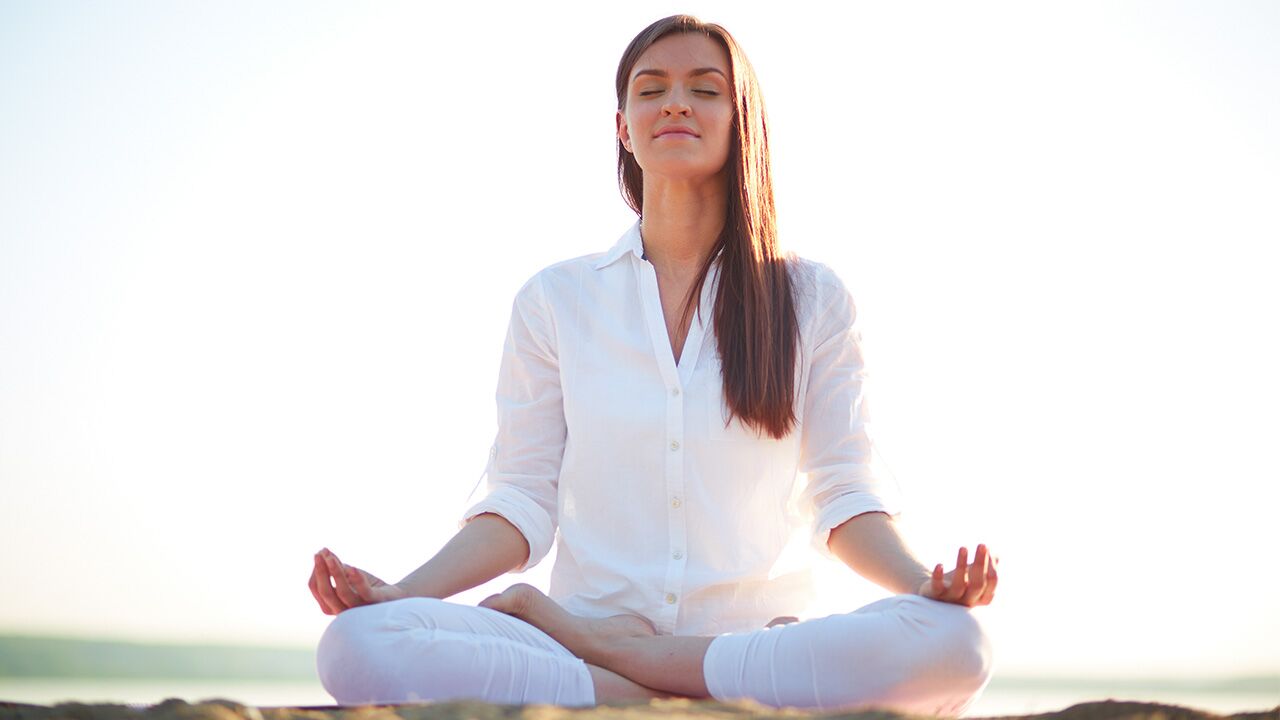Coping with Anxiety: Types, Symptoms and Treatments
 By: by Amino Science
By: by Amino Science

Everyone gets anxious now and then. And while it’s perfectly normal to feel a little nervous about that big date or upcoming presentation at work, chronic, excessive worry that invades your everyday life can have a negative effect on your physical and mental health. So if you’re suffering from anxious thoughts, a general sense of unease, or even full-blown panic attacks, read on to discover important tips for coping with anxiety and improving your well-being and quality of life.
What Is Anxiety?
Occasional anxiety is a normal, even healthy part of life. It can heighten your senses and provide motivation in stressful situations. It can even help save your life when a fight-or-flight situation arises. But when anxiety either doesn’t go away or gets worse with time, it begins to color your entire life and can make even the most basic tasks seem impossible.
When this happens, it becomes what’s known as an anxiety disorder. In fact, anxiety disorders are the most common of all psychiatric conditions, affecting nearly 40 million people in the United States each year. However, determining who will develop an anxiety disorder and who won’t isn’t a simple task. That’s because anxiety is a complex condition that’s influenced by many different factors. Some of these include:
- Family history: People with a history of anxiety in the family may have a genetic predisposition toward developing the condition, though not everyone with a family history will develop anxiety.
- Personality traits: Studies have shown that children with certain traits, including perfectionism, low self-esteem, and control issues, have a greater chance of developing anxiety.
- Stressful events: People who experienced trauma or abuse as a child are more likely to suffer from anxiety. Traumatic events experienced as an adult may also predispose someone to developing an anxiety disorder.
- Health problems: People dealing with chronic medical conditions, including diabetes, chronic pain, and heart disease, are more at risk of having anxiety. Anxiety may also be a sign of certain medical problems, as in the case of hyperthyroidism, certain tumors, and drug and alcohol withdrawal.
- Mental health conditions: People with coexisting mental illnesses like depression often experience anxiety as well.
Types of Anxiety Disorders
While there are many different forms of anxiety, according to the National Institutes of Mental Health (NIMH), the five major types are:
- Generalized anxiety disorder (GAD): This disorder involves chronic feelings of worry and tension that interfere with a person’s ability to perform daily activities or enjoy life.
- Obsessive-compulsive disorder (OCD): This is a type of anxiety disorder in which sufferers experience recurrent, unwanted thoughts and sometimes repetitive, compulsive behaviors, such as handwashing, cleaning, or counting. These rituals provide temporary relief from obsessive negative thoughts, and levels of anxiety increase when they’re not performed.
- Panic disorder: This is an extreme form of anxiety in which individuals suffer repeated episodes of intense fear, or panic attacks. These anxiety attacks often involve physical symptoms, including chest pain—which may further increase the sense of panic when interpreted as a heart attack—shortness of breath, and dizziness.
- Post-traumatic stress disorder (PTSD): This form of anxiety may arise after living through a traumatic experience, such as childhood abuse, a serious accident, or combat, and can lead to recurrent unpleasant symptoms like nightmares, flashbacks, insomnia, and even violent outbursts.
- Social anxiety disorder: This type of anxiety disorder is also known as social phobia and is characterized by avoidance of social situations due to feelings of fear and excessive self-consciousness. This type of anxiety can be limited to one type of activity, like public speaking or eating in front of other people, or occur any time contact with other people is necessary. An estimated 7% of Americans experience social anxiety disorder.
Symptoms of Anxiety
Anxiety isn’t a subtle condition, and when you have it, you tend to know it. Whether it’s a general sense of being ill at ease or the hyperventilation and palpitations that can accompany a panic attack, anxiety lets you know it’s there. But anxiety can also mess with your head, causing you to throw logic out the window and think something positively dreadful is either happening right now or going to happen in a very short time.
If you’ve ever had anxiety, you’re probably familiar with this worry and self-doubt. But because anxiety can throw all sorts of unexpected things your way, it’s sometimes calming just being aware of the different types of symptoms that might arise. With that in mind, we offer the following list of symptoms often associated with anxiety and panic.
| Feelings of nervousness and tension | Insomnia |
| Overwhelming sense of panic or doom | Frequent urination |
| Shortness of breath or hyperventilation | Sense of detachment or unreality |
| Fear of losing your mind | Hot flashes or chills |
| Palpitations or dizziness | Fuzzy thinking or brain fog |
| Sweating or trembling | Tunnel vision |
| Muscle pain and twitching | Excessive worry |
| Abdominal pain, nausea, or diarrhea | Desire to avoid anxiety triggers |
| Loss of appetite or overeating | Feelings of exhaustion or weakness |
| Numbness or tingling sensations | Difficulty concentrating or focusing on tasks |
Coping with Anxiety: Treatments and Strategies
Unfortunately, no single treatment for anxiety works for everyone. However, there’s a host of both conventional and complementary and alternative treatments available for people suffering from anxiety disorders, so with a little patience, everyone should be able to find the therapy that works best for them.
Before getting into the different types of complementary and alternative treatments, let’s first take a look at the more well-known types of therapy for anxiety—medication and psychotherapy.
Medication
Various medications are available for treating anxiety. If you and your health care provider feel your symptoms warrant medication, one may be chosen based on the severity of your symptoms, the type of anxiety disorder you have, and whether you also have other physical or mental health issues. Some of the more common options are:
- Antidepressants: Certain antidepressants have been found to be effective in treating anxiety disorders, especially selective serotonin reuptake inhibitors (SSRIs), such as escitalopram (Lexapro) and paroxetine (Paxil), and selective norepinephrine reuptake inhibitors (SNRIs), including duloxetine (Cymbalta) and venlafaxine (Effexor XR).
- Benzodiazepines: While benzodiazepines (Xanax, Valium, Ativan) are widely used in the treatment of anxiety disorders, they carry a high risk of dependence with long-term use.
- Buspirone: The anti-anxiety medication buspirone (BuSpar, Vanspar) has been shown to be effective in treating anxiety and has the added plus of carrying a low risk of dependence.
Psychotherapy
Perhaps the most well-known form of psychotherapy is counseling. This tried and true approach to treating anxiety disorders involves talking with a health care provider to address specific issues and develop strategies for coping with anxiety. Unlike other forms of psychotherapy, however, counseling is generally considered a short-term approach. Several longer term methods of psychotherapy are available also. These include:
- Cognitive behavioral therapy (CBT): CBT is one of the most effective forms of therapy for people suffering from anxiety. This generally short-term treatment is designed to address ongoing problems, find more effective coping strategies, and develop new ways of processing feelings, thoughts, and behaviors. CBT can also help people who’ve experienced traumatic events process and reframe the experience.
- Eye movement desensitization reprocessing therapy (EMDR): One of the newer forms of psychotherapy, EMDR has been proven effective for a range of anxiety disorders. Based on the observation that certain eye movements can reduce the intensity of disturbing thoughts, EMDR is designed to reduce the impact of these thoughts by utilizing specific eye movements while focusing on particular traumatic events or memories.
- Acceptance and commitment therapy (ACT): This type of psychotherapy has also been used successfully to treat a range of anxiety disorders. ACT involves learning to stop fighting and accept particular traits or emotions, recognizing that feelings are merely passing sensations, and then choosing the direction you most want to go and taking action to engage in behaviors that will move you toward that goal.

Complementary and Alternative Therapies
In addition to the more conventional therapies, a number of complementary and alternative treatments have shown efficacy in treating anxiety. What makes these therapies especially useful is that they not only can be used in conjunction with more traditional forms of treatment in the short term, but they can also be incorporated as a series of lifestyle changes over the long term to help prevent the recurrence of anxiety in the future.
Relaxation Techniques
The opposite of the fight-or-flight response of anxiety is the so-called relaxation response. Practicing some of these simple techniques to elicit that response can be very helpful for people suffering from anxiety.
- Deep breathing exercises: Taking a series of slow, deep breaths while focusing on nothing but your breathing can help disengage your mind from anxious thoughts.
- Body scan: This technique involves a few minutes of deep breathing, followed by progressive muscle relaxation, focusing on one part of the body at a time and mentally releasing any tension.
- Guided imagery: This technique involves imagining yourself immersed in a soothing place or experience. Practicing this approach can help create feelings of relaxation and improve focus.
- Mindfulness meditation: This form of meditation involves focusing on the breath while bringing attention to the present moment, gently drawing the attention back to the present each time the mind drifts to thoughts of the past or future.
- Tai chi, yoga, and qigong: All three of these ancient practices combine rhythmic breathing with flowing movements and specific postures and have been proven to decrease anxiety, help manage stress, and improve flexibility and balance.
- Biofeedback: This relaxation technique uses sensors to provide feedback, helping you learn to control certain bodily functions and thus reduce unwanted symptoms.
Emotional Freedom Technique
The emotional freedom technique, or EFT, is a method that involves tapping specific acupressure points on the body while reciting certain phrases. Although EFT is a relatively new method for treating anxiety, at least one study has already found it effective in reducing symptoms.
Aromatherapy
The use of aromatherapy—essential oils from plants for therapeutic purposes—has long been touted for treating anxiety, and its effectiveness has been demonstrated in several studies.
For example, one study found that aromatherapy was effective in reducing anxiety in patients awaiting surgery, while another found that rose water was useful in reducing anxiety in hemodialysis patients. And yet another study found that lavender essential oil demonstrated many of the benefits of anxiolytics without any of the harmful side effects.
Additional essential oils shown to have relaxing effects include:
- Vetiver
- Ylang ylang
- Bergamot
- Clary sage
Diet and Nutrition
Studies have shown that eating a diet rich in fruits, vegetables, whole grains, and omega-3 fatty acids and low in processed foods, sugar, and caffeine can have a tremendous effect on your state of mind. Moreover, studies have shown a link between the deterioration of the Western diet and increasing rates of mental health disorders.
In fact, a study from 2008 not only emphasizes the importance of nutritional therapy in treating mental health conditions but also references almost 30 additional studies that have found a link between nutrient deficiencies and mental illness.
Some of the nutrients found to be associated with mental health conditions include:
- Omega-3 fatty acids
- B vitamins
- Magnesium
- Vitamin C
- Lecithin
- Amino acids
Several amino acids, including gamma-aminobutyric acid (GABA), tryptophan, and 5-hydroxytryptophan (5-HTP), have been shown to be beneficial in treating anxiety.
For instance, GABA is an inhibitory neurotransmitter that helps induce a state of relaxation, and tryptophan and 5-HTP are both precursors of serotonin, low levels of which have been linked to both anxiety and depression. In addition, the amino acid L-theanine, which can be found in green tea, helps reduce anxiety by blocking excitatory stimuli at the brain’s glutamate receptors and by stimulating production of GABA.
A balanced amino acid supplement that emphasizes these particular substances may help provide much needed support for people suffering from anxiety disorders, including helping them get enough sleep, which is crucial for getting symptoms under control.
Finally, perhaps one of the most powerful ways of coping with anxiety is learning not to fear it. This is easier said than done, of course. But the cycle of anxiety and panic can become a self-perpetuating one as a person begins to fear the fear.
What do we mean by this?
The symptoms of a panic attack can be so severe that one begins to fear the very possibility of having one. This fear in itself can trigger another attack until they start happening seemingly out of the blue. And pretty soon, they become so crippling that a person becomes more and more housebound until they’re literally being held hostage by their anxiety.
But when it comes to anxiety, knowledge really is power, and the best way to start combating this vicious cycle is by defusing some of the fear by learning everything one can about anxiety. Then comes the scary part—accepting that to get through it, you must face it.
You see, anxiety is like a bully. If you let it have its way, it’ll just take more from you the next time and the next until you wake up one day to find you’re living a shadow of a life.
So when anxiety rears its ugly head, try not to run from it. Like exercise, it won’t be easy at first, but the more you’re able to accept the fear and sit with it until it passes—and it will pass—the looser its hold on you will be and the more you’ll be free to live your life as you were always meant to.
Of course, if you’re experiencing symptoms of severe anxiety and don’t feel capable of going it alone, don’t hesitate to speak with a health professional. They can help get you through the current crisis and guide you toward the therapy or therapies that work best for you.

Up to 25% off Amino
Shop NowTAGS: conditions natural cures
Join the Community
Comments (0)
Most Craveable Recipes




 833-264-6620
833-264-6620



















